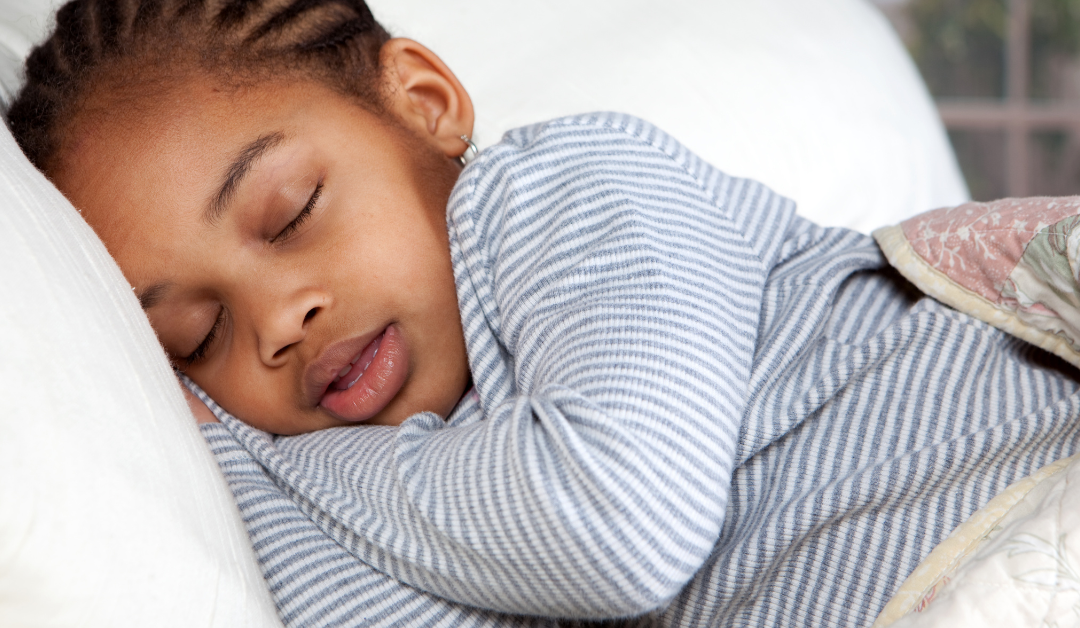For both children and teenagers, a good night’s sleep isn’t just a luxury; it’s a fundamental necessity for their physical and mental well-being. Sleep and mental health are inextricably linked. Especially for children and teens who are undergoing the most important phases of brain growth, most of which happens during sleep. Unfortunately, many young people today struggle with chronic sleep problems, and the consequences can be far-reaching, impacting their mental health in significant ways.
Let’s delve into the intricate connection between sleep and mental health in children and teens, and explore how prioritizing healthy sleep habits can foster their overall well-being.
The Science Behind the Connection of Sleep and Mental Health
During sleep, our brains recharge and restore themselves, processing information, consolidating memories, and regulating emotions. When sleep is disrupted, these crucial processes are impaired, leading to:
- Increased stress and anxiety: Sleep deprivation triggers the body’s stress response, releasing hormones like cortisol that can exacerbate anxiety and make it harder to manage difficult emotions.
- Depression: Chronic sleep problems are linked to an increased risk of depression, especially in adolescents. The lack of quality sleep can impact mood, motivation, and energy levels, contributing to depressive symptoms.
- Difficulty focusing and learning: Insufficient sleep affects cognitive function, making it harder for children and teens to concentrate in school, retain information, and perform well academically.
- Emotional dysregulation: When sleep-deprived, young people may struggle to manage their emotions effectively, leading to outbursts, irritability, and difficulty navigating social interactions.
Beyond The Science
While the scientific evidence is clear, the impact of sleep on mental health goes beyond clinical symptoms. When children and teens don’t get enough sleep, they miss out on essential opportunities for emotional growth and development. They may struggle to connect with others, build healthy relationships, and develop coping mechanisms for dealing with life’s challenges.
Promoting Health Sleep Habits
The good news is that prioritizing healthy sleep habits can play a vital role in protecting and promoting mental well-being in children and teens. Here are some key strategies:
- Establish a consistent sleep schedule: Go to bed and wake up at the same time each day, even on weekends, to regulate the body’s natural sleep-wake cycle.
- Create a relaxing bedtime routine: Engage in calming activities like reading, taking a warm bath, or listening to soothing music before bed.
- Ensure a sleep-conducive environment: Make the bedroom dark, quiet, and cool for optimal sleep quality.
- Limit screen time before bed: The blue light emitted from electronic devices can interfere with sleep, so avoid screens for at least an hour before bedtime.
- Encourage regular physical activity: Exercise can promote better sleep, but avoid strenuous activity close to bedtime.
- Seek professional help if needed: If sleep problems persist or significantly impact mental health, consult a healthcare professional for guidance and support.
Tips for Helping Children Sleep
- Make bedtime a positive experience. Spend time cuddling, reading stories, or talking about their day.
- Involve children and teens in creating their sleep routine. This gives them a sense of ownership and responsibility.
- Lead by example. Practice healthy sleep habits yourself to set a positive tone for the whole family.
- Be patient and supportive. Changing sleep habits takes time and effort.
Remember: Every child and teenager is unique, and their sleep needs may vary. Be patient, consistent, and celebrate even small improvements in sleep habits. By prioritizing healthy sleep, you can empower young people to build a foundation for good mental health and overall well-being.
By working together and prioritizing healthy sleep, we can help children and teens thrive, not just survive, in their ever-evolving world. Remember, a good night’s sleep is a powerful tool for fostering mental well-being and unlocking their full potential.
Children’s Mental Health Services in Houston, Texas
Accepting Medicaid & Private Insurance
Reach out
Phone Number: 1-855-AOC-6100
24 Hours Crisis Line: 832-934-7770
Hours: Monday-Friday 9-5PM
Location: Houston & San Antonio areas
Houston Email: admin@aocoutreachservices.com
San Antonio Email: admin.sa@aocoutreachservices.com
Insurance Accepted
Medicaid: Texas Children Health Plan, Superior Health Plan, Molina Healthcare, United Healthcare
Private: Aetna, Blue Cross Blue Shield, & Cigna
Offices
Houston Office: 6671 Southwest Freeway, Suite 675, Houston, Texas, 77074
San Antonio Mailing Address: 45 Northeast Loop 410 Suite 207, San Antonio, Texas 78216
Follow Us
learn more
Start Services


